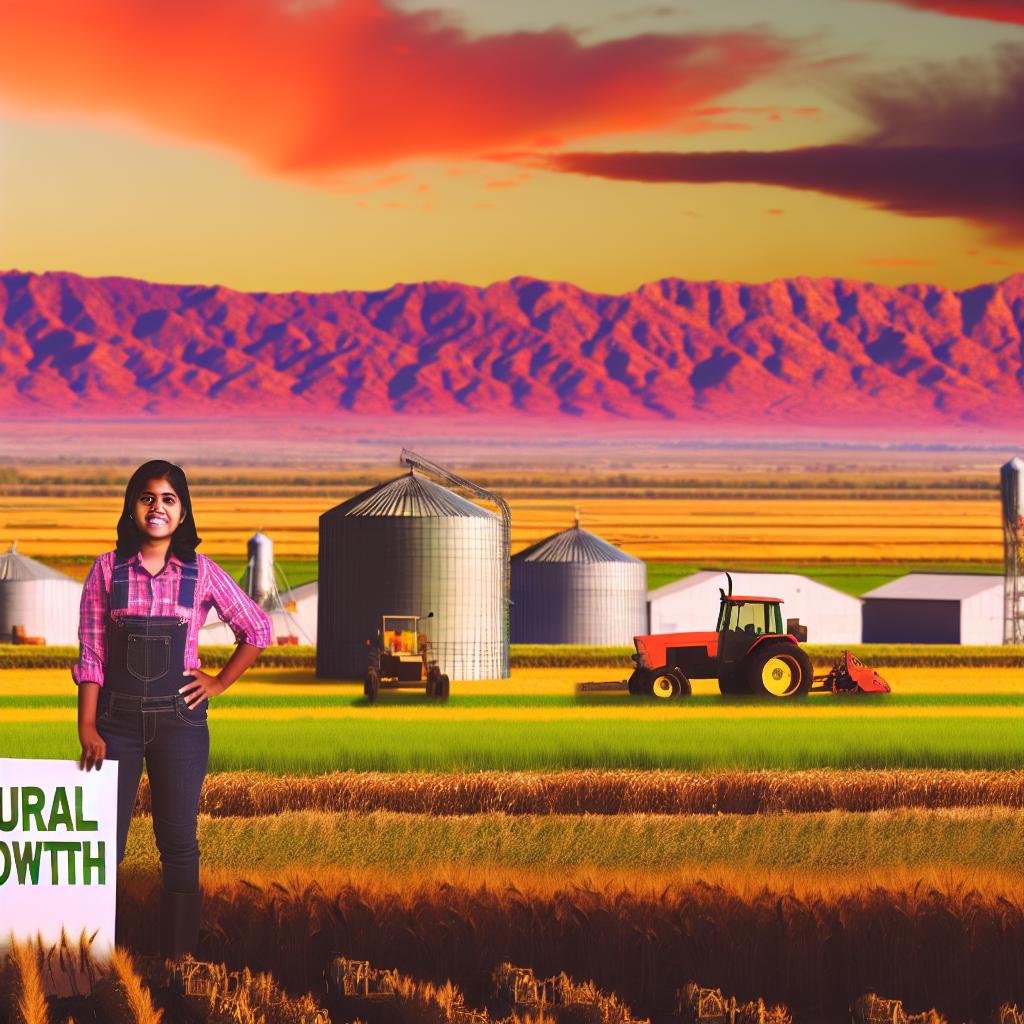Overview of Farm-To-Table Events
Definition of Farm-To-Table Events
Farm-to-table events connect consumers directly with local farms.
They showcase fresh, seasonal produce through various activities.
These events often include dining experiences, markets, and farm tours.
Participants enjoy meals made from ingredients sourced locally.
Farm-to-table emphasizes the importance of supporting local agriculture.
Importance of Farm-To-Table Events
Farm-to-table events foster community relationships with local farmers.
They promote awareness of sustainable food practices and nutrition.
Additionally, these events support the local economy by boosting sales.
People gain appreciation for where their food comes from.
By participating, consumers learn about seasonal eating habits.
Moreover, these events often raise funds for local agriculture initiatives.
Supporting Farm Cooperatives and Rural Growth
Farm cooperatives benefit from increased visibility at these events.
Direct consumer engagement drives higher demand for local produce.
Rural areas experience economic growth due to increased tourism.
These events create job opportunities in food preparation and service.
Transform Your Agribusiness
Unlock your farm's potential with expert advice tailored to your needs. Get actionable steps that drive real results.
Get StartedFurthermore, they encourage local investment in sustainable agriculture practices.
The Role of Farm Cooperatives in Supporting Local Agriculture
Introduction to Farm Cooperatives
Farm cooperatives play a crucial role in local agriculture today.
They connect farmers with resources, support, and community.
Additionally, cooperatives empower farmers to work collectively.
Benefits of Farm Cooperatives
One significant benefit is cost savings on supplies.
By pooling resources, farmers can buy inputs in bulk.
This approach reduces individual expenses significantly.
Furthermore, cooperatives enhance market access for small farmers.
Through collective marketing, they reach broader audiences.
As a result, farmers gain better prices for their products.
Strengthening Local Economies
Farm cooperatives contribute significantly to local economies.
They create jobs and stimulate community growth.
When farmers succeed, the entire community benefits.
- Increased agricultural productivity
- Support for local businesses
- Development of rural infrastructure
Promoting Sustainable Practices
Many cooperatives emphasize sustainable farming techniques.
They promote practices that protect the environment.
This commitment ensures a healthier community for future generations.
Additionally, cooperatives offer training in sustainable agriculture.
Farmers learn innovative methods to reduce their ecological footprint.
Fostering Community Connections
Cooperatives foster strong community ties among farmers.
The sharing of knowledge and experience benefits everyone.
Farmers can rely on each other for support during difficult times.
Furthermore, cooperatives often engage in community events.
These events raise awareness about local agriculture.
They build relationships between farmers and consumers.
Showcase Your Farming Business
Publish your professional farming services profile on our blog for a one-time fee of $200 and reach a dedicated audience of farmers and agribusiness owners.
Publish Your ProfileCase Studies of Successful Cooperatives
Success stories abound in the realm of farm cooperatives.
For instance, the Green Valley Cooperative promotes organic farming.
Their success has encouraged others to adopt similar practices.
Similarly, the Coastal Farmers Cooperative focuses on seafood sustainability.
Their efforts protect marine life while supporting local fishermen.
Benefits of Hosting Farm-To-Table Events for Rural Communities
Supporting Local Economies
Farm-to-table events directly boost local economies.
They create income opportunities for farmers and vendors.
Additionally, these gatherings stimulate local businesses.
People tend to shop and dine at nearby establishments.
Building Community Connections
These events foster relationships among community members.
Farmers meet customers face-to-face at these gatherings.
This interaction helps build trust in local food sources.
Moreover, friendships often blossom over shared meals.
Promoting Sustainable Practices
Farm-to-table events encourage sustainable farming practices.
They raise awareness about the importance of local food.
Consumers learn how their choices affect the environment.
Furthermore, attendees often support eco-friendly initiatives.
Enhancing Nutrition Awareness
These events promote understanding of healthy eating.
Participants learn about seasonal and fresh ingredients.
Guest chefs often demonstrate cooking techniques and recipes.
People leave feeling inspired to make healthier choices.
Attracting Tourism
Farm-to-table events can attract visitors from beyond the community.
They showcase the area’s unique agricultural offerings.
Tourists often seek out authentic local experiences.
Consequently, this influx of visitors supports the region’s economy.
Fostering Educational Opportunities
Farm-to-table events offer learning experiences for all ages.
Workshops and demonstrations engage attendees on various topics.
Participants may learn about cooking, gardening, or nutrition.
Ultimately, this educates the community about food production.
Uncover the Details: Permaculture Practices for Enhancing Biodiversity on Farmlands
How Farm-To-Table Initiatives Promote Sustainable Practices
Connection to Local Agriculture
Farm-to-table initiatives strengthen ties between consumers and local farmers.
They encourage people to buy fresh, seasonal produce directly from growers.
Moreover, consumers gain a better understanding of where their food comes from.
This connection fosters appreciation for local agricultural efforts.
Encouragement of Organic Farming
These initiatives often support organic farming practices.
By prioritizing organic products, they help reduce chemical usage.
Consequently, this leads to healthier soil and ecosystems.
Farmers benefit through higher prices for organic produce.
Promotion of Biodiversity
Farm-to-table events provide a platform for diverse foods.
This encourages farmers to grow a variety of crops.
Showcase Your Farming Business
Publish your professional farming services profile on our blog for a one-time fee of $200 and reach a dedicated audience of farmers and agribusiness owners.
Publish Your ProfileBiodiversity helps combat pests and diseases naturally.
As a result, this practice enhances resilience against climate change.
Community Engagement and Education
These events often host workshops and cooking classes.
Participants learn about sustainable practices and healthy eating.
Such education empowers consumers to make informed choices.
Ultimately, it inspires support for sustainable agriculture.
Economic Support for Local Farmers
Farm-to-table initiatives boost local economies significantly.
By focusing on local sources, they create jobs in farming and food services.
In addition, communities retain more money within their local economies.
This sustained income supports family-owned farms and cooperatives.
Find Out More: Maximizing Farm Resources By Transforming Surplus Produce Into Value-Adds
Case Studies: Successful Farm-To-Table Events in Various Regions
Pacific Northwest Success Story
The Pacific Northwest boasts a vibrant farm-to-table movement.
One successful event is the Seattle Farm Feast.
This annual gathering features local chefs and farmers.
Attendees enjoy dishes made from fresh, seasonal ingredients.
Additionally, chefs share their culinary techniques through cooking demonstrations.
The event supports small farms and educates consumers about local food choices.
Midwestern Agriculture Showcase
In the Midwest, the Heartland Harvest Festival stands out.
This festival connects farmers and the community in a delightful way.
It celebrates local produce, meats, and artisanal products.
Visitors can experience farm tours, tastings, and live music.
Moreover, this event promotes sustainable practices among participating farms.
Southern Flavor Fest
The Southern states have their own farm-to-table initiatives.
A prominent example is the Bluegrass Farm to Table Festival.
This event showcases Kentucky’s rich agricultural heritage.
Attendees indulge in dishes made from locally sourced ingredients.
Additionally, educational workshops focus on cooking and sustainable agriculture.
Many local artisans display their crafts, enhancing the community spirit.
New England Culinary Connection
In New England, the Maple Syrup Festival highlights local flavors.
This festival features not only maple syrup but also local produce.
Farmers and chefs collaborate to create unique dishes.
Workshops teach participants about syrup production and organic farming.
This event fosters connections between consumers and local producers.
Leveraging Technology in Events
Virtual platforms have emerged as important tools for promoting farm-to-table events.
Online cooking classes and live-streamed farmer interviews enhance accessibility.
Participants can join from anywhere, broadening the audience reach.
Using social media, organizers create buzz and engage with attendees pre- and post-event.
This approach builds community and keeps the momentum alive year-round.
Building Community Through Local Cuisine
Farm-to-table events play a crucial role in community building.
They foster connections between local producers and consumers.
Showcase Your Farming Business
Publish your professional farming services profile on our blog for a one-time fee of $200 and reach a dedicated audience of farmers and agribusiness owners.
Publish Your ProfileParticipants gain a deeper understanding of food sources.
These events often lead to new partnerships among local businesses.
Ultimately, they promote economic growth in rural areas.
Delve into the Subject: Organic Dairy Farming Practices for Sustainable Milk Production
How to Organize a Farm-To-Table Event
Begin by defining the purpose of your event.
Determine whether it promotes local produce or raises funds for cooperatives.
Clearly outline goals to guide your planning.
Choose a Suitable Location
Select a venue that can accommodate your guests.
Consider farms, community centers, or local parks as options.
Ensure the site has adequate facilities for food preparation.
Collaborate with Local Farmers
Reach out to nearby farms for partnership opportunities.
Engage with cooperative members to source fresh produce.
Establish relationships that can lead to mutual benefits.
Plan the Menu
Design a menu that highlights seasonal ingredients.
Incorporate dishes that showcase the local produce.
Consider dietary restrictions to accommodate all guests.
Market Your Event
Utilize social media platforms to spread the word.
Create flyers and posters for local distribution.
Connect with community groups to reach a broader audience.
Secure Essential Permits
Check local regulations regarding event permits.
Ensure that you comply with health and safety standards.
Obtain food service permits if needed for your venue.
Engage Volunteers
Recruit volunteers to assist with planning and execution.
Assign roles such as setup, serving, and cleanup.
Ensure volunteers understand their responsibilities clearly.
Prepare for the Day of the Event
Set up the venue ahead of time to avoid last-minute issues.
Arrange tables and decorations to create an inviting atmosphere.
Confirm that all food is prepared and ready for serving.
Gather Feedback
After the event, seek feedback from participants and partners.
Use surveys or informal discussions to gather insights.
Evaluate successes and areas for improvement for future events.
Find Out More: Permaculture Practices for Efficient Water Conservation Methods

Engaging the Community: Strategies for Increasing Participation
Building Awareness
Start by raising awareness about the importance of local farming.
Utilize social media to share success stories of farm cooperatives.
Engage with local influencers to amplify your message.
Host informational sessions that highlight community benefits.
Create visually appealing flyers to distribute around town.
Creating Inclusive Events
Design events that cater to various age groups and interests.
Incorporate interactive activities like farm tours and cooking demos.
Offer workshops on sustainable practices and local cooking.
Showcase Your Farming Business
Publish your professional farming services profile on our blog for a one-time fee of $200 and reach a dedicated audience of farmers and agribusiness owners.
Publish Your ProfileEncourage family participation through kid-friendly activities.
Provide diverse meal options to accommodate dietary preferences.
Collaborating with Local Businesses
Partner with local restaurants to feature farm-to-table menus.
Invite local businesses to sponsor events or donate products.
Encourage participation from nearby artisans and crafters.
Promote events through local businesses’ networks and customers.
Highlight partnerships in marketing materials to increase visibility.
Encouraging Volunteerism
Create volunteer opportunities during events to foster community spirit.
Offer incentives for volunteers, such as free meals or merchandise.
Share stories of how volunteering supports local farmers.
Recognize volunteer contributions publicly during events.
Provide training for volunteers to enhance their skills and knowledge.
Gathering Feedback
Collect feedback after events to improve future experiences.
Use surveys to understand community interests and preferences.
Encourage open discussions during and after events.
Incorporate suggestions and ideas from attendees into planning.
Share the impact of feedback with the community to build trust.
Evaluating the Economic Impact of Farm-To-Table Events on Local Farmers
Overview of Economic Benefits
Farm-to-table events provide significant economic advantages.
They directly support local farmers by increasing sales.
Additionally, these events expand market access for produce.
Local economies benefit from increased consumer spending.
Moreover, these events promote sustainable agricultural practices.
Impact on Farmer Income
Increased visibility leads to higher farmer income.
Farmers often sell products at premium prices during events.
As a result, they achieve better profit margins.
This income boost helps fund ongoing farm operations.
Consequently, farmers can invest in more sustainable practices.
Connecting Communities
Farm-to-table events foster community engagement.
They encourage consumers to connect with local producers.
Such connections enhance loyalty towards local farms.
Furthermore, these events promote education about food sourcing.
As people learn, they often support local agriculture more.
Local Economic Ripple Effects
The positive impacts extend beyond farmers.
Local businesses, such as restaurants and markets, benefit also.
For instance, catering services gain more clientele.
Furthermore, event organizers may hire local vendors for supplies.
Such collaborations strengthen the overall local economy.
Challenges for Farmers
Despite benefits, challenges exist for farmers participating in events.
These include logistics and costs related to event preparation.
Farmers may need to invest in marketing efforts.
Showcase Your Farming Business
Publish your professional farming services profile on our blog for a one-time fee of $200 and reach a dedicated audience of farmers and agribusiness owners.
Publish Your ProfileAdditionally, fluctuating weather can affect supply consistency.
Planning for these challenges is essential for success.
Future Trends: The Increasing Popularity of Farm-To-Table and Its Impact on Rural Growth
Rising Consumer Awareness
Consumers are increasingly aware of the benefits of farm-to-table meals.
This trend encourages healthier eating practices among diners.
Consequently, many patrons seek out local restaurants that source their ingredients sustainably.
As a result, farmers benefit from expanded markets for their produce.
Support for Local Economies
Farm-to-table events significantly bolster local economies.
They provide farmers with direct access to customers.
This strategy reduces the need for middlemen and increases farmers’ profit margins.
Moreover, local restaurants can thrive by featuring regional ingredients.
In turn, this nurtures community pride and improves economic resilience.
Enhanced Community Engagement
Farm-to-table initiatives foster a sense of community involvement.
They create opportunities for people to learn about food sourcing and preparation.
Such events often include workshops and farm tours, boosting educational outreach.
Additionally, partnerships among local chefs and farmers flourish through these interactions.
Environmental Benefits
Supporting farm-to-table practices also promotes sustainability.
These practices often rely on organic farming and sustainable agriculture methods.
As a result, communities benefit from fewer chemicals in their ecosystems.
Furthermore, reducing transportation distances minimizes carbon footprints.
This positively impacts air quality and contributes to overall environmental health.
Innovative Culinary Trends
Farm-to-table concepts are inspiring culinary creativity.
Chefs are experimenting with seasonal ingredients to create unique dishes.
Consequently, this trend attracts food enthusiasts eager to try novel flavors.
As new recipes emerge, they reflect the rich diversity of local produce.
Long-Term Economic Growth
The farm-to-table movement promises long-term economic growth in rural areas.
By investing in local farms, communities can support sustainable livelihoods.
Additionally, the popularity of these events can attract tourism to rural regions.
This economic boost creates more jobs and stabilizes local economies.
Ultimately, farm-to-table initiatives will play a pivotal role in revitalizing rural communities.




